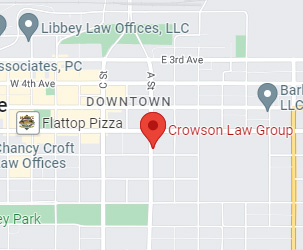Liability For Infections After Surgery

Infections after surgery are a common healthcare problem that accounts for high morbidity and mortality. Statistics shows that every year the number of patients with surgical infection increases. Any surgical infections can be triggered by the type of operation conducted on patients or the extra post-operative days a patient stays in the hospital.
While some infections are unavoidable, others can be treated by proper care and hygiene and effective barriers against disease transmissions. If you or your loved one is suffering from a surgical infection, attorneys in Anchorage Alaska can help determine who may be liable for your infections.
Understanding Infections After Surgery
Surgical infections after surgery occur when one gets get an incision during surgery that leads to a wound infection. While some of the infections show up within a month after surgery, others take time to manifest. There are many reasons why one would suffer from surgical site infections. Some include:
- Germs spreading to the surgical wound
- Body reaction to surgery
- The body reaction to surgical equipment
- Poor surgery
Other than body reaction to surgery, other reasons for infection may be caused by the doctor’s negligence. For instance, the operating area may not be sterilized. In such a case, you may be able to sue the doctor, the hospital, or any other medical personnel who may be liable for your infections.
Is A Surgical Infection A Medical Malpractice?
If you have contracted infections after surgery, this may have severe consequences on your life. Worse still, it may cost your life. Such infections can amount to medical malpractice. While thinking about medical malpractice, it’s vital to remember that infections can occur during any surgical procedure, and they might not necessarily be caused by negligence. To prove a surgical infection resulted from negligence, you can:
- Prove that there was a breach of duty either by the hospital, doctor, or any health care provider. You could show that the surgeon or any other medical provider acts were unreasonable, and things would be different if the same work was being performed by a skilled doctor with the same qualifications.
- The breach of duty must have been a direct cause of your infections after surgery. Meaning, were it not for negligence, you could not have any infection. For instance, you can prove that the hospital never maintained the required set standard of cleanliness.
Proving the above is not as easy as it may seem. You need an experienced medical malpractice lawyer to guide you on the recovery of damages. If it’s proven your case is valid, you can recover from:
- Medical expenses used to treat your infection.
- Lost wages as you will have missed work to get treatment.
- Loss of earning capacity as you take time to recover
- Pain and suffering you have undergone when you learned of the infection
- Punitive damages where it proven that the hospital or the doctor engaged in gross medical negligence.
An experienced lawyer can look for a medical expert who can differentiate between patient risk factors such as advanced age, other bodily complications from procedure-related risk such as poor skin preparation, unsterilized surgical equipment, poor surgery technique, etc.


